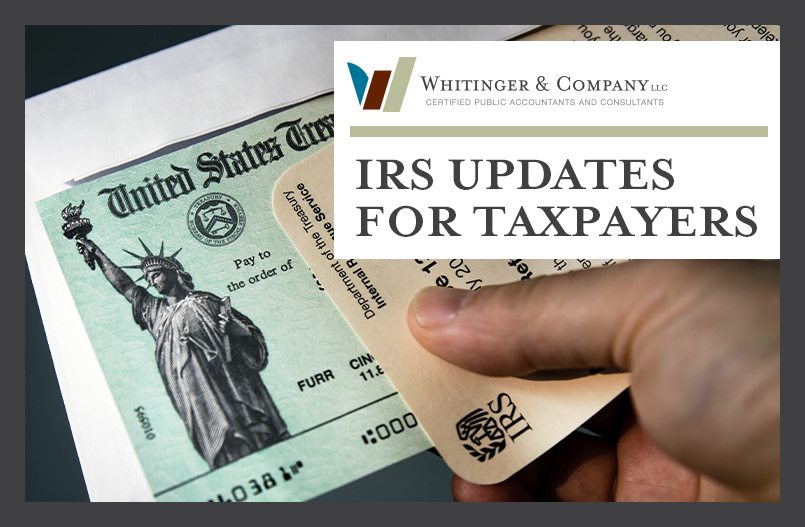IRS posts information about check processing backlog and incorrect notices
The IRS posted an update to the webpage that describes its operations during the COVID-19 pandemic. The page notes that the IRS is working through its correspondence backlog and is experiencing delays in processing paper returns, due to its limited staff.
Checks: The correspondence backlog includes checks that taxpayers have mailed to the IRS (either with or without a tax return). The IRS says that payments will be posted as of the date they received the check, rather than on the date the Service processes the check. The IRS urges taxpayers whose check has not been cashed yet not to cancel the check. However, the Service is also providing relief from bad check penalties for dishonored checks that it received between March 1 and July 15, 2020. (Interest and penalties may still apply.)
Notices: The IRS has begun mailing backlogged letters and notices as it returns to normal operations. Many of these are mailed with past due payment or response dates. Instead of generating a new, correct notice, the IRS is including as an insert with the notice or letter a Notice 1052, Important! You Have More Time to Make Your Payment. That insert will provide the updated pay or response date. The IRS says it has mailed over 20 million notices since early June with either the insert or with current dates. However, it reports that approximately 11,000 notices went out without the insert, and the Service is reaching out to the affected taxpayers.
13.9 million Americans to receive IRS tax refund interest
The Treasury Department and the Internal Revenue Service will soon start sending interest payments to about 13.9 million individual taxpayers who timely filed their 2019 federal income tax returns and are receiving refunds.
The interest payments, averaging about $18, will be made to individual taxpayers who filed a 2019 return by this year’s July 15 deadline and either received a refund in the past three months or will receive a refund. Most interest payments will be issued separately from tax refunds. In most cases, taxpayers who received their refund by direct deposit will have their interest payment direct deposited in the same account. About 12 million of these payments will be direct deposited.
Everyone else will receive a check. A notation on the check − saying “INT Amount” − will identify it as a refund interest payment and indicate the interest amount.
By law, these interest payments are taxable and taxpayers who receive them must report the interest on the 2020 federal income tax return they file next year. In January 2021, the IRS will send a Form 1099-INT to anyone who receives interest totaling at least $10. This provision is different from the long-standing 45-day rule, generally requiring the IRS to add interest to refunds on timely-filed refund claims issued more than 45 days after the return due date.
Instead, this year’s COVID-19-related July 15 due date is considered a disaster-related postponement of the filing deadline. Where a disaster-related postponement exists, the IRS is required, by law, to pay interest, calculated from the original April 15 filing deadline, as long as an individual files a 2019 federal income tax return by the postponed deadline − July 15, 2020, in this instance. This refund interest requirement only applies to individual income tax filers − businesses are not eligible.
Interest is paid at the legally prescribed rate that is adjusted quarterly. The rate for the second quarter ending June 30 was 5%, compounded daily. Effective July 1, the rate for the third quarter dropped to 3%, compounded daily. Where the calculation period spans quarters, a blended rate applies, consisting of the number of days falling in each calendar quarter. No interest will be added to any refund issued before the original April 15 deadline.
For more information, visit the IRS website.
The Whitinger team remains available to advise you throughout this situation. Please do not hesitate to reach out if you have questions or would like to discuss this new guidance.
We are here and ready to help.



